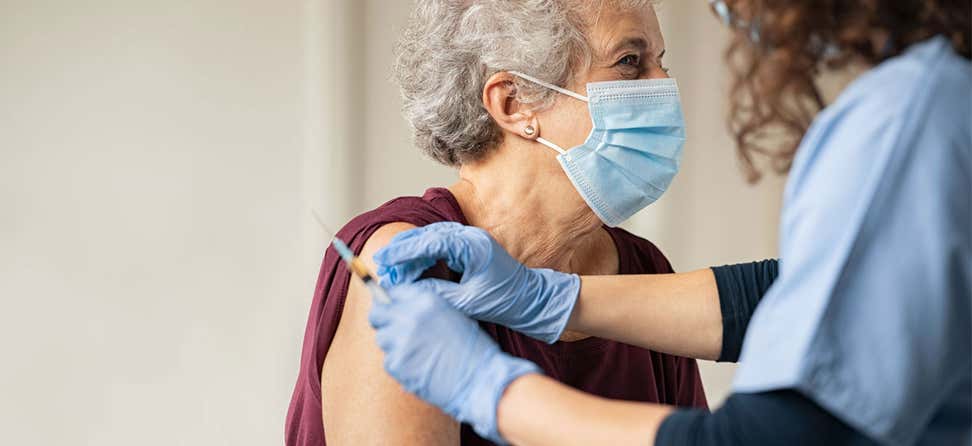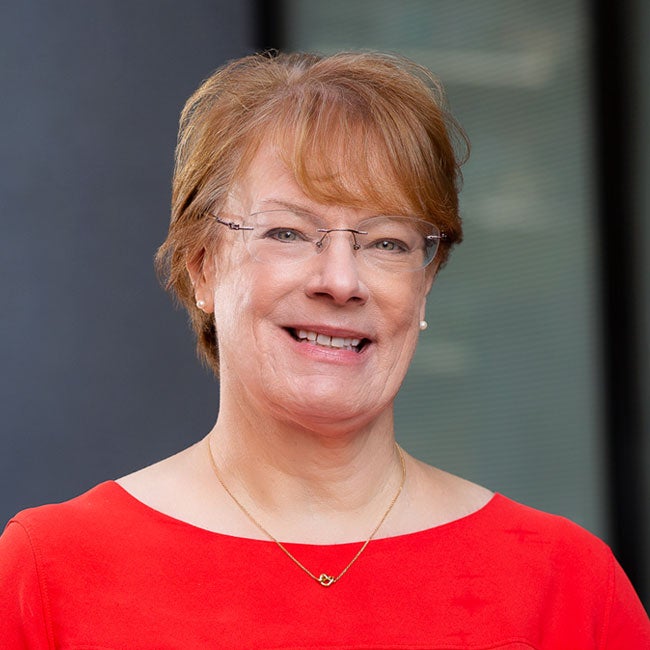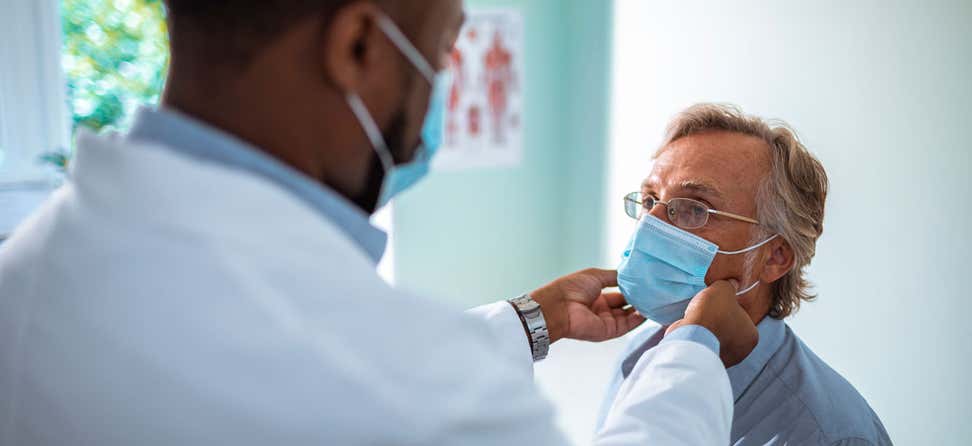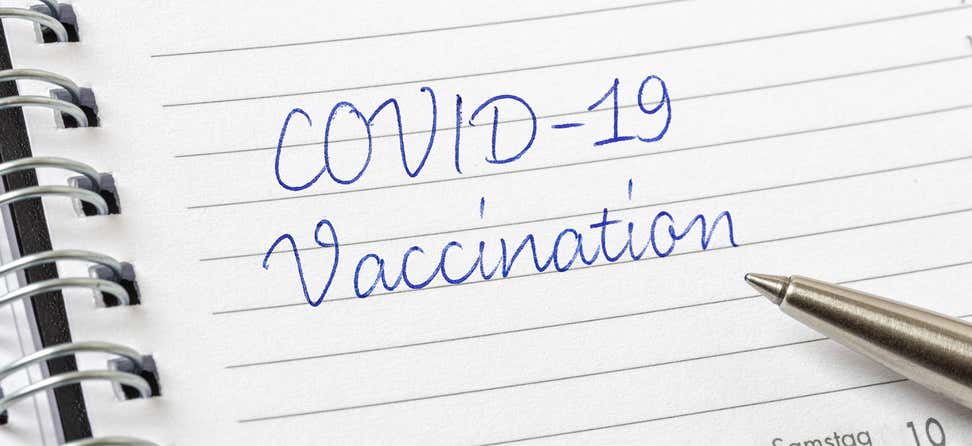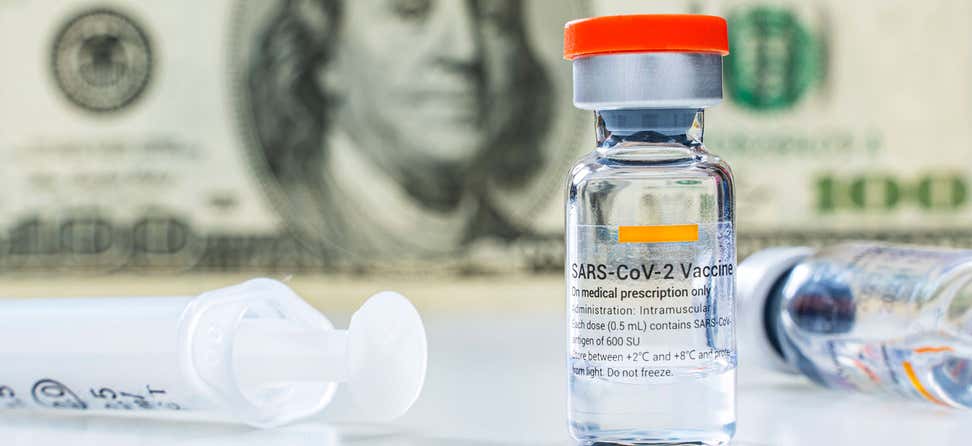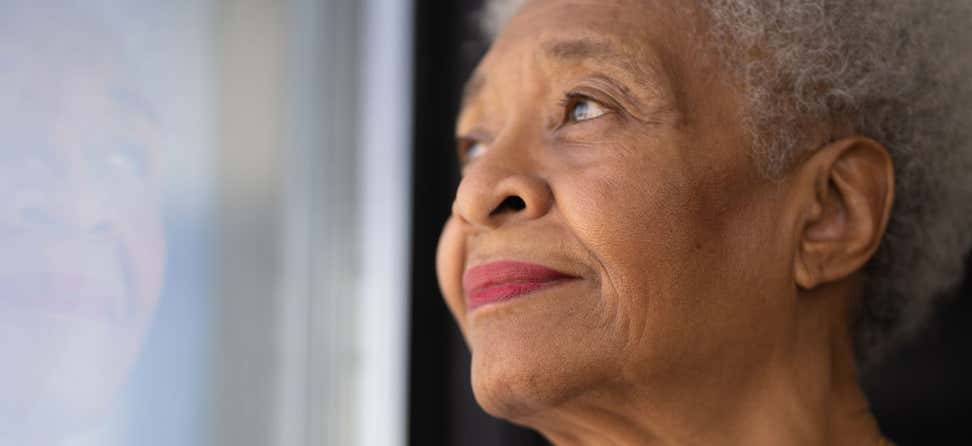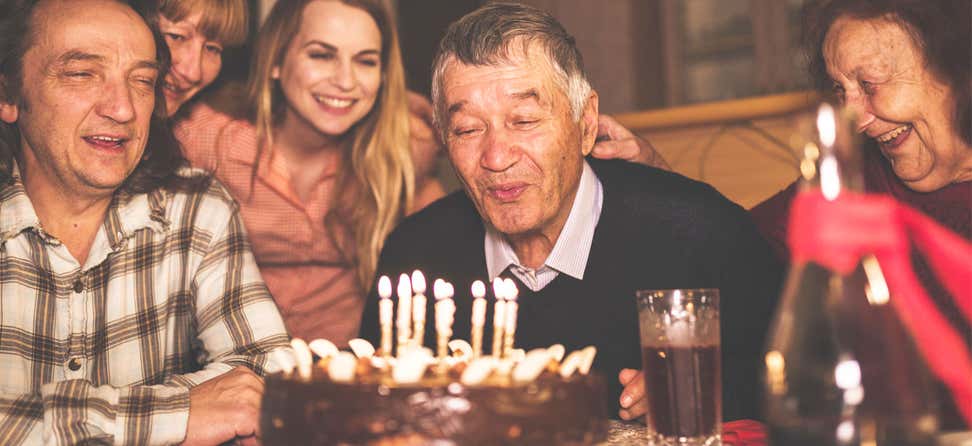Key Takeaways
The approved COVID-19 vaccines, including Johnson & Johnson's one-shot vaccine, provide optimal protection against the virus.
The vaccine is free for people with and without insurance—but beware of scams asking you to pay for it.
Take the vaccine that is first offered to you. Check with your health department, pharmacy, or doctor about when and where to receive the vaccine.
The past year has been historic for many reasons, including the development and launch of COVID-19 vaccines. Importantly, older adults and individuals from diverse backgrounds have been considered at every step during the research and development process. Below are common questions and answers on the COVID-19 vaccines.
What COVID-19 vaccines are currently available?
Two COVID-19 vaccines were authorized for emergency use by the U.S. Food and Drug Administration (FDA) in December, and in late February Johnson & Johnson's (J&J) vaccine was also authroized, which resulted in the release of 4 million doses of its one-shot vaccine.
Results from large-scale clinical trials from Pfizer/BioNTech's and Moderna's two-dose vaccines showed 94-95% effectiveness in preventing illness. These results are remarkable and much better than expected. According to the FDA, in J&J's clinical trials, the vaccine was approximately 77% effective in preventing severe/critical COVID-19 occurring at least 14 days after vaccination, 85% effective in preventing severe/critical COVID-19 and showed significant protection against COVID-19 related hospitalization and death.
Experts say that J&J's vaccine effectiveness can't be compared to that of Pfizer/BioNTech's and Moderna's two-dose vaccines because the clinical trials were run differently and studied at different times and locations. For example, the J&J vaccine was studied in places like South Africa and South America where variants of the virus have been found. J&J’s vaccine has shown protective against the strains from these locations. The great news is that we can be assured that all three vaccines are safe and effective, and experts are still reviewing how long protection will last.
How are the vaccines similar and different?
Pfizer/BioNTech's and Moderna's two-dose vaccines use novel mRNA vaccine technology to give our cells instructions on how to make a harmless protein that is unique to the coronavirus. Our cells make copies of that protein, which our bodies recognize as foreign, prompting an immune response. This immunity then fights the virus that causes COVID-19 if we are infected. This vaccine technology is new, but it has been rigorously studied for decades and the research was used to speed vaccine development. The J&J vaccine uses a different approach, called viral vector, that uses a harmless virus to instruct human cells to make the spike protein, which then triggers an immune response. This same approach was used previously by J&J to make their Ebola vaccine.
None of the three vaccines include live virus.
Pfizer/BioNTech's and Moderna's vaccines require two shots or doses, while J&J's vaccine is one. J&J's one-shot vaccine could alleviate the burden of scheduling two doses, making it ideal for older adults looking to stay at home/shelter in place as the pandemic continues to play out.
One difference is that the Pfizer/BioNtech vaccine requires very cold temperatures of -94 degrees F. Moderna’s vaccine requires storage at regular freezer temperatures. Depending on where you live, the Moderna vaccine may be the only option available. J&J's vaccine doesn't require stringent cold temperatures for storage, making it easier to transport and distribute, and likely a more "practical option for mobile or drive-thru vaccination sites," says NBC.
Why are two shots needed for the Moderna and Pfizer/BioNtech vaccines?
The first dose readies your immune system to respond. It provides some protection from the coronavirus within a couple of weeks. The second dose is the booster that provides optimal protection against the virus. The FDA approved the vaccines using the two-dose regimen.
The second dose of Pfizer’s vaccine must be administered 21 days after the first shot, and Moderna’s second dose is administered 28 days after the first. You should get your second shot as close to the recommended time as possible.
The two vaccines are not interchangeable, so you must remember which one you received first. Vaccine sites are providing cards as a reminder. You should make your appointment for your second dose when you get your first dose. Bring your card with you when you receive your second dose.
J&J is also testing a two-dose regimen, with the shots given eight weeks apart. Results from this large-scale clinical trial are expected in May. In addition, J&J is investigating antibody responses when a booster shot is given much later after the first dose.
Are the COVID-19 vaccines safe and are there side effects?
Regardless of which vaccine you get, they were all evaluated through the same process as all other vaccines approved by the FDA. Drug companies were required to provide extensive safety data from clinical trials involving tens of thousands of people.
Side effects are normal signs that our bodies are building protection. They may affect your ability to do daily activities, but they should go away in a few days. Common side effects reported so far are pain and swelling at the injection site or upper arm. Others may include fever, chills, tiredness, and headache.
When you receive your vaccine, you will be required to wait at least 15-30 minutes to check for an allergic reaction, which is rare but may occur in some people, especially those with a history of anaphylaxis. If you fall into this category, speak with your doctor about the vaccine.
Will I need a vaccine every year?
It’s still unclear how long the vaccines will provide protection and whether they will be needed every year like the flu vaccine. For older adults, these questions are very important because as we age, our immune systems weaken. Experts are studying the long-term response to the vaccine.
What will the vaccines cost?
The federal government has announced that the COVID-19 vaccine will be free for people with Medicare, Medicaid, and private insurance and for those with no insurance. Vaccine providers can bill insurance companies for the cost, so bring your Medicare or other insurance card with you when you get vaccinated.
Be aware of scams! The federal government has provided the following information:
- You likely will not need to pay anything out-of-pocket to get the vaccine during this public health emergency.
- You cannot pay to put your name on a list to get the vaccine.
- You cannot pay to get early access to the vaccine.
- You will not be solicited door-to-door to receive the vaccine.
- No one from Medicare or the health department will contact you.
- No one from a vaccine distribution site or health care payer, like a private insurance company, will call you asking for your Medicare number, Social Security number, credit card, or bank account information to sign you up for the vaccine.
Where can I get the vaccine?
Vaccines have been distributed across the U.S. since mid-December. In general, state and local health departments are responsible for the rollout. To learn more:
- Start with your local health department. Many communities are setting up vaccine clinics, including drive-through sites. You may be required to register online and schedule a time. Some communities are also using mobile units to bring the vaccine to hard-to-reach individuals.
- Talk with your local pharmacist about when they will be giving shots. Some pharmacies have already started. You may have to schedule a time due to high demand. Your pharmacist also can answer your questions.
- Check with your doctor or hospital, as they are also receiving the vaccine to administer. Your doctor should be aware of vaccine sites in your community. If you receive care through a health clinic or home health, check with them for the latest information.
- Contact your Area Agency on Aging or senior center. To find yours, contact Eldercare Locator (1-800-677-1116).
If you need assistance getting the vaccine, please seek help from family, friends, or neighbors.
Will I still have to wear a mask and take other precautions after I’m vaccinated?
Although the vaccines are very effective at reducing illness, we don’t yet know whether they reduce the likelihood of contracting the coronavirus and being an asymptomatic carrier and unknowingly infecting others. It also will take some time to vaccinate most of the population.
That’s why it’s important to continue following the very important safety precautions issued by the CDC, states, and localities:
- Wear a face mask at all times in public and when around people not in your household
- Keep 6 feet apart from people not in your household
- Wash hands frequently
- Avoid crowds
The bottom line …
Getting vaccinated is one of the most important steps you can take to protect yourself and others from COVID-19. For many older adults and those with ongoing conditions like heart disease and diabetes, the vaccine can prevent severe illness or death from the coronavirus. For now, you’re unlikely to have much of a choice of vaccines. It’s important to take whichever vaccine is offered to you first. As vaccine supplies increase and more options become available in the coming months and years, doctors may be able to recommend different types of vaccines for different populations, including older adults.
Vaccination will get us back to normal, something we all want as soon as possible.


